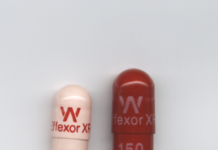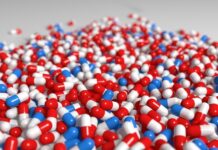We Need to Stop Prescribing Antidepressants in Primary Care
In this op-ed for Pulse, Des Spence argues the case for dramatically reducing antidepressant prescriptions, as antidepressants are often completely ineffective and unnecessary.
"Clearly psychological pain,...
A Shot Against Post-Traumatic Stress Disorder
From Scientific American: Last year, a study at the University of Colorado Boulder found that injecting mice with beneficial bacteria helped increase their resilience and decrease...
Food Insecurity Linked to Mental Health Globally
Global analysis of 149 countries finds food insecurity is associated with poorer mental health.
Lifestyle Changes, Not a Magic Pill, Can Reverse Alzheimer’s
From Aeon: A recent study at UCLA found that lifestyle changes including diet modifications, exercise, stress management, and increased sleep can significantly improve the memory and...
Researchers Search for Subgroups Where Antidepressants Are More Effective
The researchers theorized that this increased effectiveness was due not to “antidepressant” properties, but rather to the drug’s side effects, which include insomnia, drowsiness, and nausea.
Parents Tinker With Diet to Treat ADHD
From STAT: Concerned about the potential adverse effects of ADHD medications, some parents are addressing their children's ADHD through nutrition-based approaches.
Article →
Gut Feelings on Parkinson’s and Depression
From Cerebrum: Modulating the gut microbiota may be an effective strategy to treat both Parkinson's disease and depression.
Article →
Minimal Exercise Protects Against Depressive Symptoms in Older Adults
Study of older adults shows those who consistently exercised as little as 15 minutes, 3 times/week are less likely to develop depressive symptoms.
Psychosis Diagnosis Linked With Lower Rates of Exercise
A new study finds that for those experiencing symptoms associated with psychosis, a low-level of physical activity is associated with receiving a diagnosis of a psychotic disorder.
Physical Activity Predicts Fewer Symptoms of Depression in Children
An article published in Pediatrics is the first to examine the relationship between physical activity and depression in middle childhood (years 6 to 10) longitudinally.
Finding the Way to Mental Health
I love counseling, and helping people deal with their emotional and relational problems. But in addition, I encourage anyone suffering from mental issues to consider that nutritional issues are also involved in their distress.
A Healthier Diet Reduces Depressive Symptoms
The “Mediterranean diet” has been associated with reduced risk of depressive symptoms, and a new study demonstrates that dietary changes may be an effective treatment intervention.
Baycrest Creates First Canadian Brain Health Food Guide
From Medical Xpress: Baycrest scientists have developed the first Canadian Brain Health Food Guide, which provides older adults with guidelines and advice on maintaining a healthy...
Nutrient Supplementation Improves Outcomes for Patients Diagnosed with Schizophrenia
A review article and meta-analysis of 18 articles published in the journal of Psychological Medicine reported effects of vitamin and/or mineral supplements on psychiatric symptoms in people diagnosed with schizophrenia. The study provides evidence of the beneficial effects of taking certain vitamins and minerals for improving symptoms associated with schizophrenia.
Animal Study Supports Influence of Probiotics on Resilience to Stress
Researchers experimenting on mice found that Lactobacillus—the probiotic commonly found in yogurt—may help reduce depressive symptoms in reaction to chronic stressors. But human studies have found mixed results.
Discussing Nutrient Formulas Without Naming Them: Who Benefits?
Do we not want our public to pay attention to the quality of science behind a treatment? By constantly dancing around the product names of nutrient formulas, we are doing a disservice to those who need accurate information.
Despite Increase in Treatments, Prevalence of Mental Health Issues Climbs
Findings show that despite increases in treatment availability, the prevalence of mental health issues has not decreased.
B Vitamins Reduce Schizophrenia Symptoms
From Hindustan Times: Treatments using high-dose B-vitamins, including B6, B8, and B12, can considerably reduce symptoms of schizophrenia.
Article →
SMILES Study: Depression and Nutrition
The question this study asked was: In adults with depression who eat a poor diet, does teaching them about nutrition have an impact on their mental health? At the end of the 12-week intervention, the answer was: Yes.
New Medications Fail to Show Efficacy for Alzheimer’s Disease
Three phase III clinical trials assessing the efficacy of Lundbeck’s investigational drug idalopirdine for Alzheimer’s disease have failed
Vital Minds: Four Stories of Recovery
My patients have trashed themselves for decades, and after one month of dietary change, daily meditation, detox, and psychospiritual support, they are reborn. At a time when people are being euthanized for depression because they believe it to be a life sentence, it has never been more critical to spread the truth that healing is possible.
Treating Metabolic Conditions May Resolve Some Depressive Symptoms
New research suggests that treatable metabolic abnormalities underlie some treatment-resistant cases of depression—and treating the metabolic condition has the possibility of dramatically reducing depressive symptoms
Study Finds the Spice Curcumin Fights Depression
The study finds that curcumin may be as efficacious as antidepressant medications, particularly for atypical depression
“How Exercise Might Keep Depression at Bay”
In an editorial for the New York Times, Gretchen Reynolds discusses three new studies finding that exercise is effective in preventing and treating depression.
Article...
Inner Fire: Healing and Recovery Without Meds
For five years, I and others worked to create a residential healing community in Brookline, Vermont, where people could recover from debilitating and traumatic life experiences, which often lead to addiction and mental health challenges, without the use of psychotropic medications. We welcomed our first six seekers to a yearlong, therapeutic and farm-based, day program last September, and we now can report on what we have learned during this time.

































